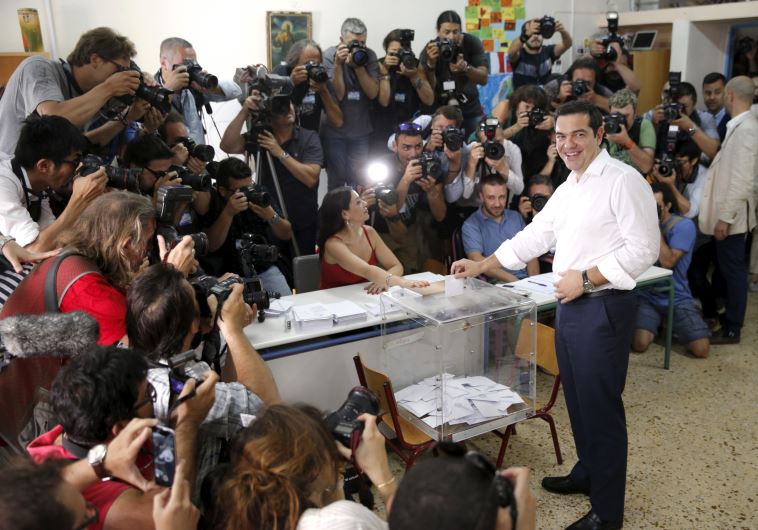The zero hour of Greece: Turning minus to plus
The current crisis, and every crisis, is a tremendous opportunity for growth, maturity and development for all involved.
 Greek Prime Minister Alexis Tsipras votes at a polling station in Athens, Greece July 5, 2015.
Greek Prime Minister Alexis Tsipras votes at a polling station in Athens, Greece July 5, 2015.